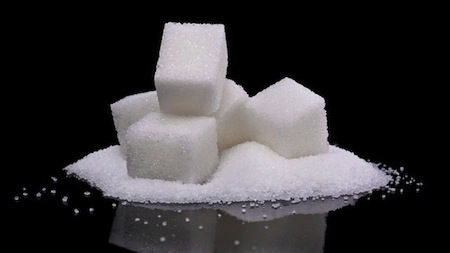If you've spent any time in a pastry kitchen, you're well aware of the delicate process of cooking sugar. As sugar is heated it 'melts,' and at stages between simple syrup and blackjack caramel it boasts a variety of unique properties. However, researchers at the University of Illinois now know that sugar doesn't melt-it's actually decomposing.
Unlike water, which can be melted and frozen ad infinitum, sugar retains the properties it gains when cooked to a certain temperature. This is why it's so useful in the kitchen-caramel stays caramel, soft-ball stay soft-ball, and hard-crack stays hard-crack even once cooled down so their applications are not dependent on retaining high temperatures.

Interestingly, the most useful information gained from the research shows that the temperature sugar is cooked to is not the only factor in a final sugar product. The rate at which sugar is cooked plays a large role in how the outcome will taste. The researchers are experimenting with slow and low sugar cooking processes (rate of apparent melting) to alter the flavors found in caramel and other sugar stages.
Shelly J. Schmidt, a University of Illinois professor of food chemistry, told ACES News, "Certain flavor compounds give you a nice caramel flavor, whereas others give you a burnt or bitter taste. Food scientists will now be able to make more of the desirable flavors because they won't have to heat to a 'melting' temperature but can instead hold sugar over a low temperature for a longer period of time," said Schmidt, "This discovery is important to food scientists and candy lovers because it will give them yummier caramel flavors and more tantalizing textures. It even gives the pharmaceutical industry a way to improve excipients, the proverbial spoonful of sugar that helps your medicine go down."